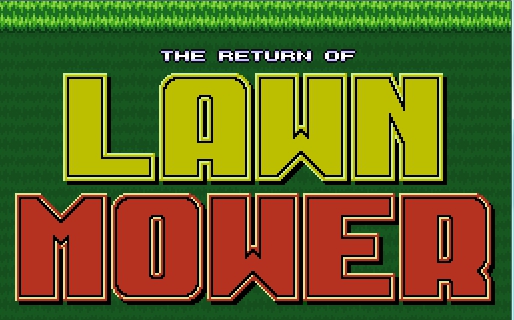If you’ve been to a nerdy convention with a game room, you have doubtless encountered some manner of gaming tournament – usually for stuff like fighting games or FPS titles, maybe some RTS or MOBA sessions if someone arranged a LAN setup for PCs. Every so often, however, you’ll encounter the fabled “mystery tournament.” The idea behind these is that you get a bunch of people to play through a gauntlet of different games with varied short goals, eliminating players along the way until you wind up a champion. Pretty typical, save for the multi-game part – the catch is that none of the players know in advance what is going to be played, and typically the game choices are obscure or off-the-wall so that players, in all likelihood, have never played them before.
Mystery tournaments are tons of fun for a lot of reasons. First and foremost, they present a playing field that’s a bit more level – everyone’s going into these games at least semi-blind, so you don’t have the “oh, I’m out of practice” reluctance that would come when considering entering specific titles you may not have had time to play. Another factor is that they test a completely different set of skills than a typical game tournament: whereas a fighting game tournament might test your ability to compete against several different characters and individual playstyles in a single game you’re intricately familiar with, a mystery game tournament challenges your ability to quickly learn rules and figure out effective means of play coming from no familiarity at all across multiple titles. Sure, having a good knowledge of action games might be helpful when you’re given a random platform title to play, but what happens when you get something totally new like an unreleased indie game with completely bizarre mechanics that the dev gave to the tourney organizers? You’d better be able to learn, and quickly.
The absolute best thing about mystery tournaments, however, is the games themselves. You’re given an opportunity to discover interesting titles – some of which you’d never consider playing or overlook amongst your already-massive backlog – within a fast-paced and competitive environment. Now, this certainly isn’t the best way to first experience some games, but getting (or even just seeing) that taste of a game from a mystery tournament can be enough to get people interested in exploring it further. For example, when competitive indie darling Nidhogg showed up at the finals of a Northwest Majors mystery tournament, it got a whole heaping of hype and attention1:
Or check out the finals for Lethal League, from UFGT9:
Of course, the games don’t necessarily have to be obscure – you can take old favorites and put new and unexpected twists on them. UFGT was very well known for this, their mystery tournaments included stuff like Spinjustice (playing Injustice while people spin the chair you’re sitting in slowly), Marvel vs. Capcom 2 all-Thanos teams, Soul Calibur 2 on DDR pads (see the first part of the video above), and last year’s surprise ender Don’t Break The Ice:
https://www.youtube.com/watch?v=NxZEc9HgBp4
It’s great on many levels: organizers can showcase games that they want to give more attention and think players would enjoy, participants get to explore a bunch of old and new games they may have otherwise overlooked, and developers can showcase, build hype, and get feedback from players in an exciting environment.
I’d like to encourage people to organize and participate in in-person mystery tournaments, which is why I’m writing this – to help bring more awareness to the format. But it can be difficult: having a bunch of different games usually means having a bunch of different consoles and controllers to manage, which can be a tech nightmare, especially when running on a tight convention schedule. It’s also a fair bit harder to promote a mystery tournament given that you can’t attach the name of a popular game to it (even if you’re playing some bizarre variant of said popular game).
Fortunately, it’s also possible to organize mystery tournaments through the internet. SpeedRunsLive, who you may know as part of the folks who put on the Games Done Quick marathon, holds their own online mystery tournaments twice a year. While I’m not a speedrunner, I’m (obviously) a huge fan of the format, and the SRL Mystery Tournaments have a few interesting twists that make them particularly appealing. Read on for an account of how my Mystery Tournament 6 experience went down.
- And thus Lord BBH’s shame lives on. I’M SORRY ;_; ↩
